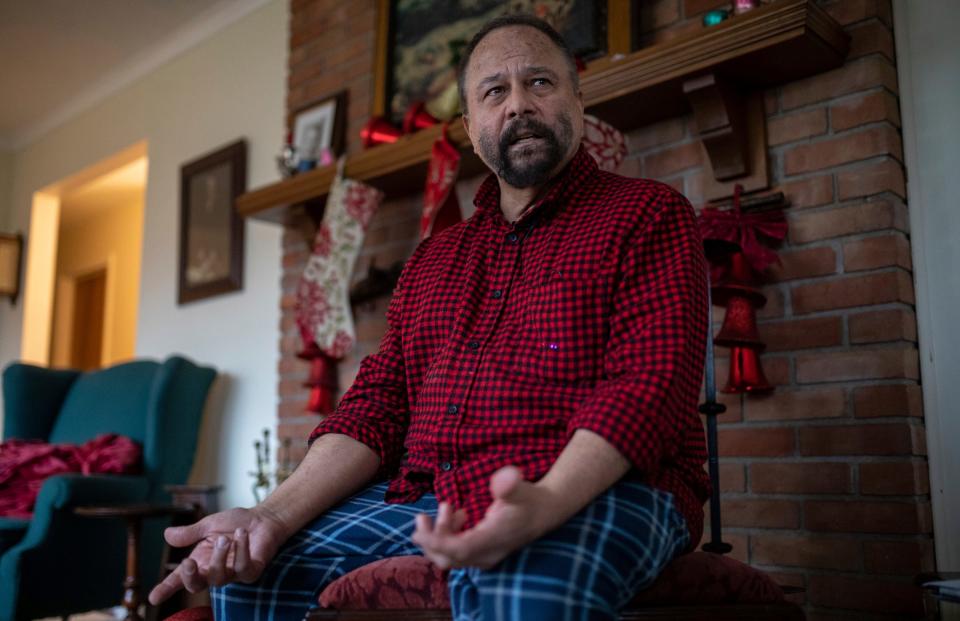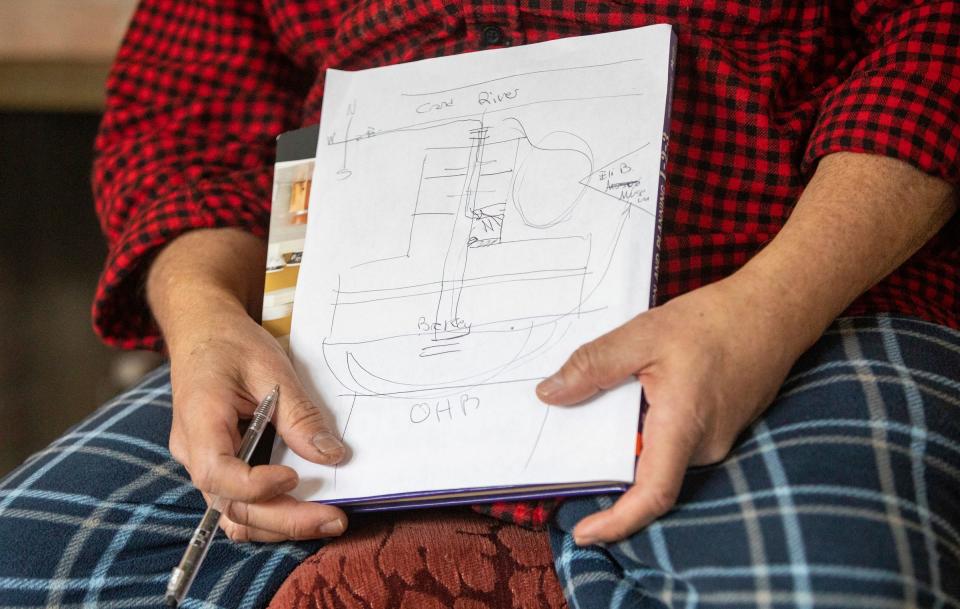Professor who faced Michigan State gunman speaks out
Marco Díaz-Muñoz kept saying the same thing when he caught up with his wife.
“They need to help them,” he told Claudia Díaz, when he met her outside the school building after the chaos.
“They need to help them.”
Normally dressed professionally and with purpose, the assistant professor’s navy button-down shirt was hanging open, haphazardly thrown back on, and his belt was missing — both taken off for wound care, though as he recalls, only his belt was used.
Díaz-Muñoz, 64, had just experienced the worst and yet all too common reality of American education — that a person can enter a place of learning and decide to end the lives of those inside, seemingly on a whim. On Monday night, in Room 114 of Michigan State University’s Berkey Hall, where Díaz-Muñoz had been reviewing a lesson on treasure routes and piracy in the Caribbean as part of his Cuban cultural identity class, he’d found himself face to face with the masked gunman behind Michigan's latest school shooting. The assistant professor and his wife recounted it all in Thursday interviews in their Lansing home.

Paramedics swarmed the building — the help for which Díaz-Muñoz had begged, his wife said.
But by then two of his injured students, Arielle Anderson, 19, of Harper Woods and Alexandria Verner, 20, of Clawson, the ones he most worried needed that help, were “gone,” he was told.
At ages 19 and 20, they became two of three students fatally shot that night. Brian Fraser, 20, of Grosse Pointe, was also killed, with his death believed to have occurred as the shooting spree continued to the nearby student union. Several of Díaz-Muñoz’s other students were hospitalized.
On Thursday, Díaz-Muñoz demanded action.
More:An onslaught of trauma is creating a generation on alert
More:Crisis therapists cleared their schedules to help MSU students, faculty
“If those senators that sit …. comfortable in their seat, making decisions on statistics, had seen what I saw, they would be shamed or their humanity be touched,” he said.
Multiple news media members filtered through the couple's home three days after the violence, and he spoke with the hope they might share that message. With hopes legislators might not act in “self-interest,” as he described it, but act promptly, appreciating that he’s certain he doesn’t want a gun, appreciating his belief that no one needs more than a pistol to defend themselves, and understanding the senseless carnage wrought on young people like Anderson and Verner, who’d sat near the back row in his class as they’d gone about their days.
On Monday night, while teaching, he’d heard what he thought were explosions at first; he’d never heard the sound of gunshots from anything but TV or movies.
He’d frozen in the moment when the gunman — alleged to be 43-year-old Anthony McRae, who police say fatally shot himself in a later encounter — entered through a door at the back of the classroom and started firing with a silvery object seemingly bigger than a pistol, Díaz-Muñoz said.

After the gunman walked out, Díaz-Muñoz held the door at the front of the classroom closed, leaning back and pressing his foot against it with all his weight, he said. He was worried the gunman might walk through that door next.
When the assistant professor finally saw police, he let the door go. Somewhere in the next moments, he called his wife. Somewhere in that time, which was both fast and slow, he ran over and started to pull Verner out of a row of chairs, before thinking better of it, lest he might cause her more trauma.
He remembers seeing both girls’ lips move. He remembers exclamations from a nearby student of “I don’t want to die.” He remembers kids trying to kick out windows and escaping through others. He remembers the students who stayed to help. And he remembers saying it in the classroom too, “They need help.”
And speaking Thursday, he hoped that those in power would take heed.
Contact Darcie Moran: dmoran@freepress.com.
This article originally appeared on Detroit Free Press: Professor who faced Michigan State gunman speaks out

